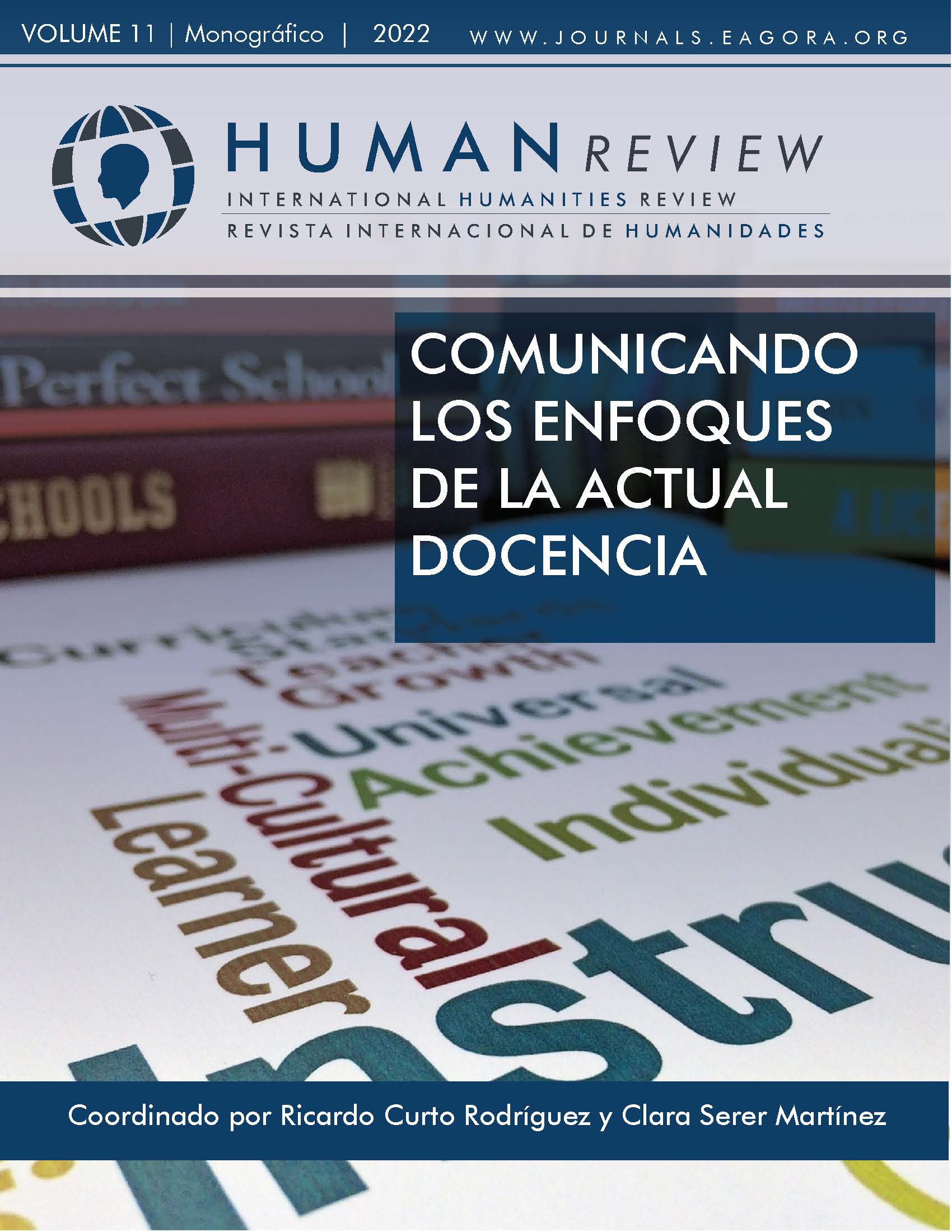Assessment criteria and formative feedback: teachers’ perspectives
Keywords:
Criteria, Quality, Learning, Negotiation, Autonomy, Feedback, TeachersAbstract
This work examines the different teachers’ perspectives when externalising assessment criteria. A number of findings from a doctoral research are exposed. These address, on the one hand, an analytical methodology that seeks clarity and transparency while communicating criteria, and also by decomposing the learning goal into small sequences, conveying an atomized idea of what knowledge is. On the other hand, it explores a more holistic standpoint that foregrounds in the interrelationship amongst assessment criteria by allowing the understanding of the task as a whole. Moreover, the influence of both approaches with regards to feedback and formative assessment is analysed.
References
Alexander, R. J. (2008) Towards Dialogic Teaching. Rethinking classroom talk. Dialogos.
Berg, B. & Lune, H. (2012). Qualitative Research Methods for the Social Sciences. Pearson.
Black, P. & Wiliam, D. (1998). Assessment and Classroom Learning. Assessment in Education. Principles, Policy & Practice, 5(1), 7–74.
Black, P. & Wiliam, D. (2003). In praise of educational research: Formative assessment. British Educational Research Journal, 29(5), 623-637.
Black, P. & Wiliam, D. (2009). Developing a Theory of Formative Assessment. Educational Assessment Evaluation and Accountability, 21, 5–31.
Black, P., Harrison, C., Lee, C., Marshall, B. & Wiliam, D. (2003). Assessment for Learning: Putting it into Practice. Open University Press.
Black, P. & Wiliam, D. (2012). Developing a Theory of Formative Assessment. In J. Gardner (Ed.) Assessment and Learning (Assessment in Education) (pp. 206-229). SAGE Publications.
Bloom, D., Power Carter, S., Beth Morton, C., Madrid, S., Otto, S.; Shuart – Faris, N. & Smith, M., (2008). On Discourse Analysis in Classrooms. Approaches to Language and Literacy Research. Columbia University.
Bloom, D., Beirle, M., Grigorenko, M. & Goldman, S. (2009). Learning over time: uses of intercontextuality, collective memories, and classroom chronotopes in the construction of learning opportunities in a ninth-grade language arts classroom. Language and education, 23(4), 313-334.
Cohen, L., Manion, L. & Morrison, K. (2011). Research Methods in Education (seventh ed.). Routledge.
Charmaz, K. (2006). Constructing grounded theory: A practical guide through qualitative research. Sage Publications Ltd.
Hammersley, M. & Atkinson, P. (2007). Ethnography.Taylor & Francis Group.
James, M. (2006) Assessment, Teaching and Theories of Learning, in J. Gardner (ed.) Assessment and Learning, (first edition) (pp. 47-60). SAGE Publications.
Kvale, S. & Brinkmann, S. (2009). Interviews: Learning the craft of qualitative research (second ed.). SAGE Publications.
Mansell, W., James, M. & the Assessment Reform Group. (2009). Assessment in Schools. Fit for purpose? A commentary by the teaching and Learning Research Programme. Economic and Social Research Council, Teaching and Learning Research Programme.
Marshall, B. (2004). Goals or horizons-the conundrum of progression in English: or a possible way of understanding formative assessment in English. The curriculum Journal, 15(2), 101-113.
Marshall, B. & Drummond, J. (2006) How teachers engage with assessment for learning: lessons from the classroom. Research Papers in Education, 21(2), 133- 149.
Mason, J. (2002). Qualitative Researching (second ed.). SAGE Publications.
Mercer, N. (2000) Words and Minds. How we use language to think together. Routtledge.
Perrenoud, P. (1998). From Formative Evaluation to a Controlled Regulation of Learning Processes. Towards a Wider Conceptual Field, Assessment in Education. Principles, Policy & Practice, 5(1), 85–102.
Sadler, D. R. (1989). Formative Assessment and the Design of Instructional Systems. Instructional Science, 18, 119–144.
Sadler, D. R. (2007). Perils in the meticulous specification of goals and assessment criteria. Assessment in education: Principles, Policy & Practice, 14(3), 387-392.
Sadler, D. R. (2010). Beyond feedback: developing student capability in complex appraisal. Assessment & Evaluation in Higher Education, 35(5), 535-550.
Silverman, D. (2011). Interpreting Qualitative Data (fourth ed.). London: SAGE Publications Ltd.
Swaffield, S. (2011). Getting to the heart of authentic Assessment for Learning. Assessment in Education: Principles, Policy & Practice, 18(4), 433-449.
Torrance, H. & Pryor, J. (1998). Investigating Formative Assessment. Teaching, Learning and Assessment in the classroom. Open University Press.
Torrance, H. & Pryor, J. (2001). Developing Formative Assessment in the Classroom: using action research to explore and modify theory. British Educational Research Journal, 27(5), 616-631.
Yáñez - Monje, V. (2017). Exploring Teachers’ Interpretations of Feedback in Primary Literacy Classroom Settings (Doctoral’s thesis, King’s College London, England). Retrieved from https://kclpure.kcl.ac.uk/portal/en/persons/veronica-yanezmonje(9432e582-108b-489e-9db7-

